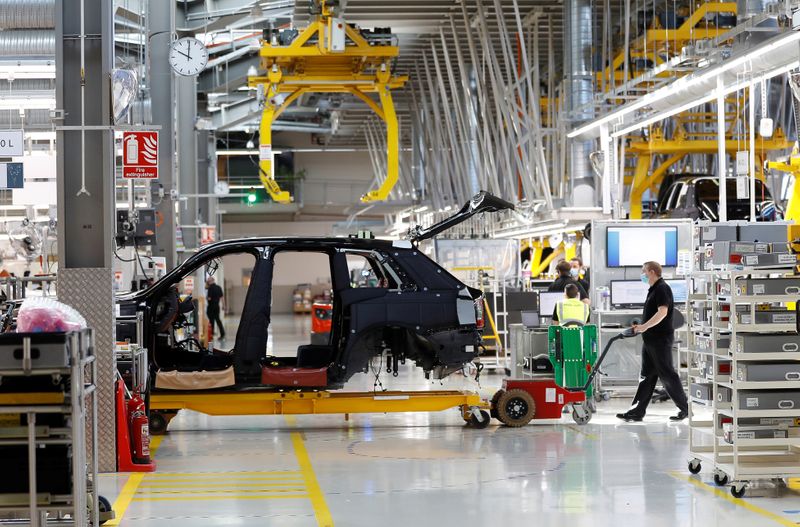By David Milliken
LONDON (Reuters) - British manufacturers reported the sharpest drop in orders for three months in September and said they expected production to remain weak for the remainder of the year due to the impact of COVID-19 and Brexit worries.
The Confederation of British Industry's (CBI) monthly industrial order book balance fell to -48 in September from -44 in August, bucking expectations in a Reuters poll of economists for a small improvement and remaining well below its long-run average.
"As manufacturing firms continue to battle against headwinds from a resurgence of the virus, weak global demand and uncertainty over our trading relationships, the government must step up its support," CBI economist Anna Leach said.
Britain's government is tightening coronavirus restrictions - including bringing in early closing for pubs and restaurants - and has reversed calls employees to return to work in offices.
Many businesses are also concerned about the end of a job support scheme next month that has paid them to keep staff on furlough until demand picks up.
"The recovery in the manufacturing sector appears to be losing momentum. Strong growth in output over the summer likely was partly due to firms shifting work backlogs that had amassed during the lockdown," said Samuel Tombs, chief UK economist at consultants Pantheon Macroeconomics.
The CBI said it wanted a replacement for the furlough programme, as well as progress on a trade deal with the European Union before transition arrangements end at the end of the year.
"Firms across the country are facing considerable uncertainty as the end of the Job Retention Scheme nears, and concerns about the potential for a no-deal Brexit have escalated as negotiations remain in stalemate," said Tom Crotty, group director of chemicals and industrial firm INEOS.
The CBI data showed manufacturers were slightly less negative about the outlook for production over the next three months, but still expected it to fall.

The most recent official data showed factory output expanded by 6.3% in July but was 9.4% lower than in July 2019.